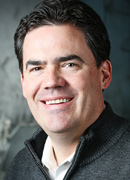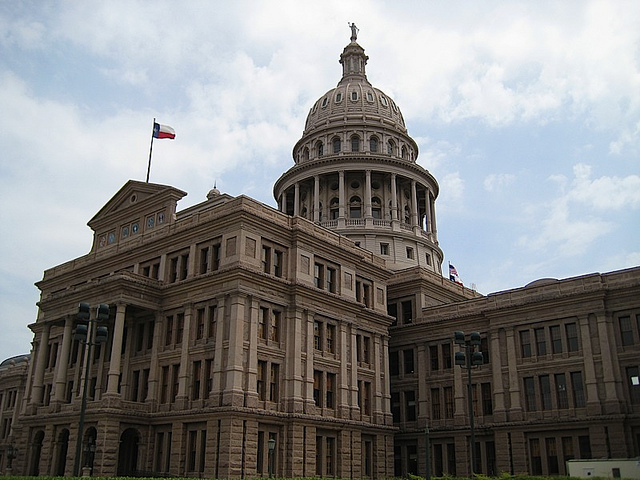By Ken Camp and Jeff Brumley
Ministers from across the Lone Star state recently urged legislators to pass legislation protecting clergy from lawsuits if they refuse to conduct same-sex weddings.
Welcome to the dance, Texas.
Experts say the number and variety of bills being filed and debated in the nation’s statehouses are coming at a dizzying rate. Ditto for lawsuits and threats of lawsuits when marriage equality butts up against religious liberty — or even when it’s just perceived to do so.
“Questions and concerns pertaining to same-sex marriage have changed the public debates about religious liberty because there have been so many public controversies,” said Hollyn Hollman, general counsel at the Baptist Joint Committee for Religious Liberty.
Hollman noted that the Texas Senate bill, and legislation like it in other states, is different from Religious Freedom Restoration Acts, which have been adopted by several states. Some of those, like Indiana’s highly controversial RFRA, don’t necessarily even mention gay marriage.
Such measures and the controversies surrounding them bring more attention and confusion to religious liberty law, Hollman said.
“It is complex and there are going to be hard issues we are going to have to figure out based on marriage rights and conflicts with other kinds of law,” she said.
Divided support
The complexity of the issue is obvious even on the state level.
In Texas, ministers from throughout the state urged a Senate committee to support a bill to protect clergy from being compelled to participate in same-sex marriage ceremonies. But representatives of some religious groups questioned whether the proposed legislation could prompt lawsuits within hierarchical denominations.
SB 2065, filed by Sen. Craig Estes, R-Wichita Falls, stipulates a minister cannot be required to officiate at a marriage ceremony if it violates sincerely held religious beliefs. It also includes a provision that refusal to provide services or facilities for such a wedding could not be the basis for civil or criminal action.
Brent Gentzel, pastor of First Baptist Church in Kaufman, Texas, compared SB 2065 to the national Honoring American’s Veterans and Caring for Camp Lejeune Families Act. That federal bill, which passed with bipartisan support in 2012, limits protests at military funerals by members of the Westboro Baptist Church, a Kansas-based congregation which the Southern Poverty Law Center identified as a hate group.

Texas pastors and the churches they serve need similar protection from fringe groups that might target them for harassment or lawsuits because their beliefs will not allow them to perform same-sex marriages, he asserted.
“We are asking the state to put laws in place — not to protect or defend against the wide-ranging views or viewpoints of any particular community, but to say to radical groups that would disrupt sacred space, ‘It’s sacred, and the state has designated it as a place where [ministers] can carry out their religious actions without interference or harassment or being drug into lawsuits,’” Gentzel said.
‘Frivolous attacks’
Many ministers in Texas serve bivocationally in small-membership churches, he added.
“They can’t afford to defend themselves against frivolous attacks,” he said.
Kyle Henderson, pastor of First Baptist Church in Athens, Texas, cited comments by some Supreme Court justices during recent debate about same-sex marriage as evidence “this protection is urgently needed in Texas.”
“These are closely held beliefs in our churches, and we think this defense is necessary. We would never have imagined it was necessary in days past, but it’s clear now that the only thing standing between us and some of these lawsuits is y’all,” he told the state senators. “We need you to stand up for us and put into place the protections every church and every faith community ought to have.”

Kris Segrest, pastor of First Baptist Church in Wylie, Texas, rejected any characterization of the bill as providing religious cover for discrimination.
“I know our faith family is open to people, and we want to minister and to reach out to all kinds of people,” he said.
Rather, the bill protects the religious liberty of ministers and the churches they serve to live out their sincerely held religious beliefs, he insisted.
“I would never want to cause anyone who disagrees with me — [anyone from] any other faith system — to have to compromise what they believe,” Segrest said. “Likewise, I would hope they would not want to do that to myself and others who share like conscience.”
Other Baptist Texans who spoke in support of SB 2065 included Bubba Stahl, pastor of First Baptist Church in Kingsland; Billy Sutherland, pastor of Calvary Baptist Church in Brenham; and Gus Reyes, director of Texas Baptists’ Christian Life Commission.
Others included Jonathan Saenz, president of Texas Values, as well as a representative from the Southern Baptists of Texas Convention and multiple nondenominational churches.
However, Joshua Houston and Bee Moorhead from Texas Impact insisted that without clarifying language, SB 2065 could create lawsuits for connectional and hierarchical religious denominations when their ministers hold contrary beliefs.
“We don’t want ministers sued. We don’t want churches sued. But we also don’t want ministers to be able to sue their denominations when those sincerely held religious doctrines are in conflict,” said Houston, general counsel for Texas Impact.
The bill would adversely affect the religious freedom of hierarchical denominations to discipline its ministers for violating religious doctrines and prescribed practices, he added.
Amendments offered
Attorneys representing the Episcopal, United Methodist and Evangelical Lutheran churches offered recommended language to amend the bill to “keep the government out of internal church decisions,” he noted.

Ryan Valentine, deputy director of the Texas Freedom Network, voiced concerns about the bill as presented, but he emphasized his organization believes no ministers should be compelled to solemnize a marriage that runs contrary to the tenets of their faith.
“We believe that is already well established and protected in the U.S. Constitution and doubly protected here in Texas with our state RFRA,” he said, referring to the Religious Freedom Restoration Act.
The Texas Freedom Network, Equality Texas and the American Civil Liberties Union of Texas recommended language similar to a clergy protection bill approved in Utah to avoid what they call “unintended consequences” of the Senate bill as filed.
Sen. Joan Huffman, R-Houston, chair of the committee, voiced hope all parties involved could reach consensus and find language they all could support.
